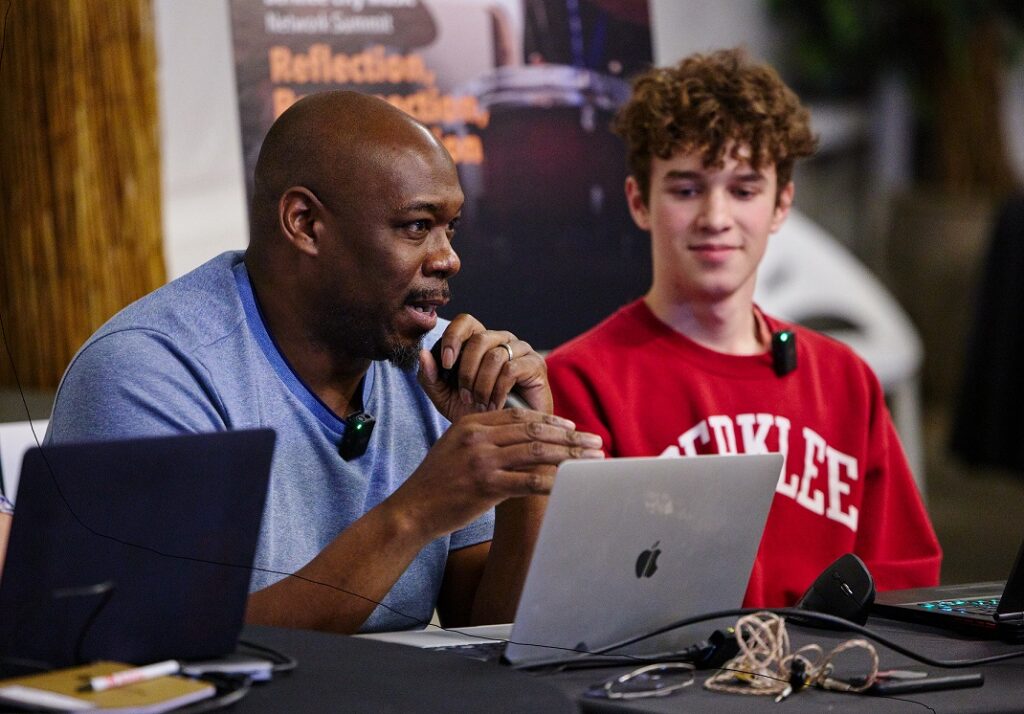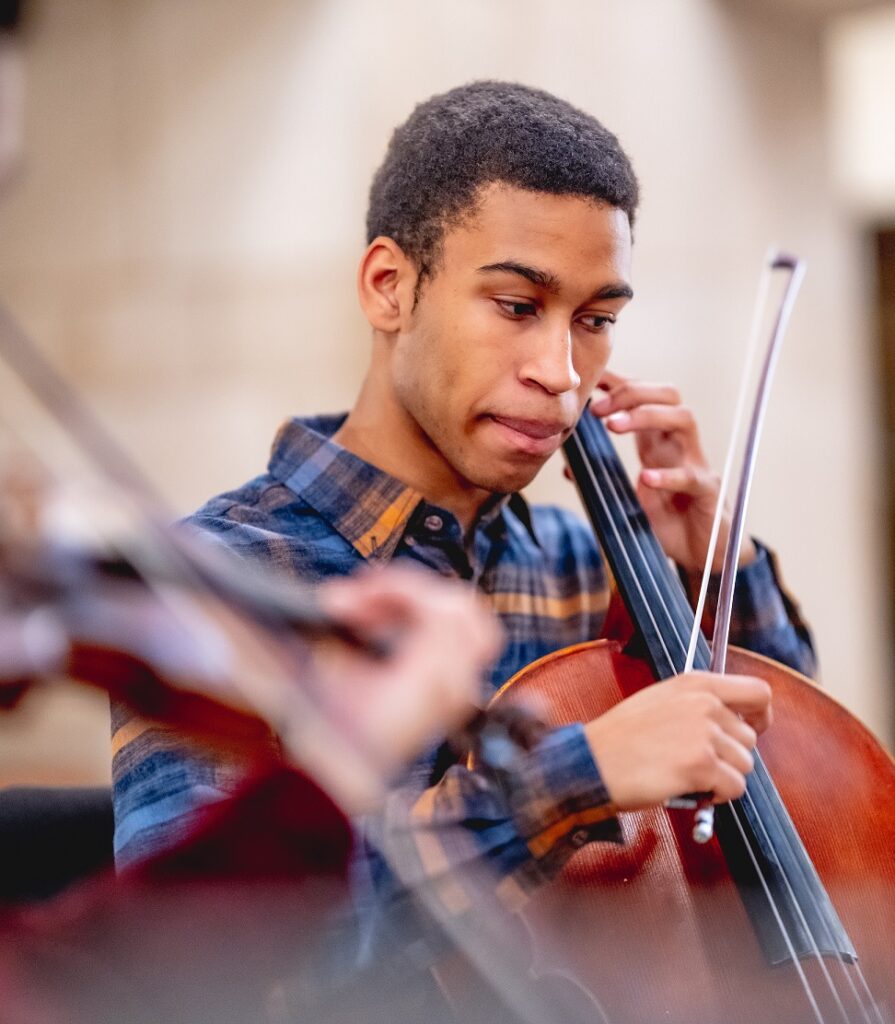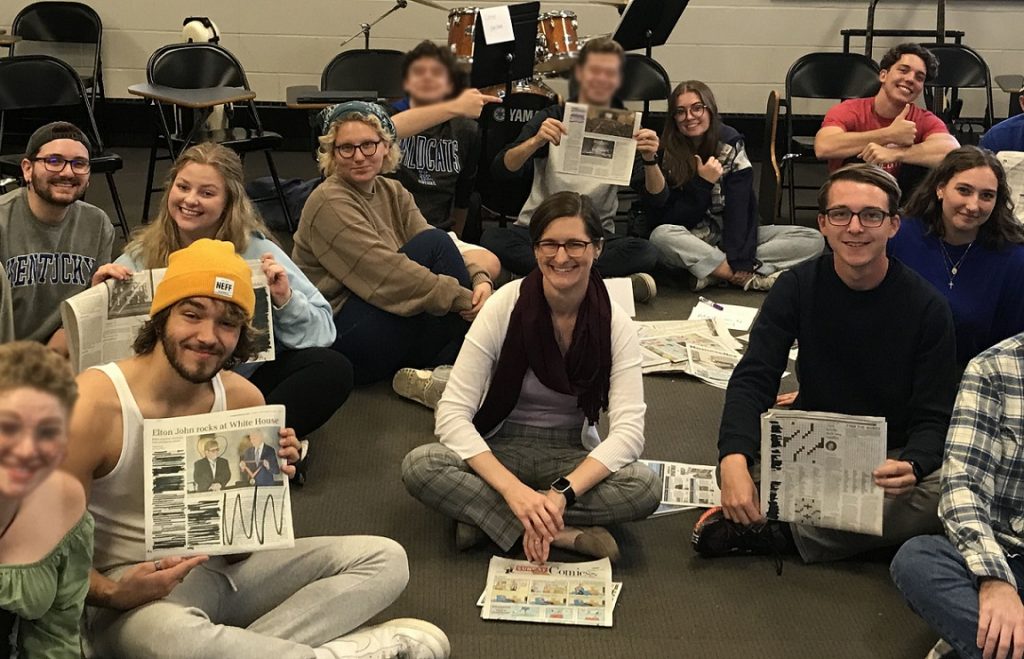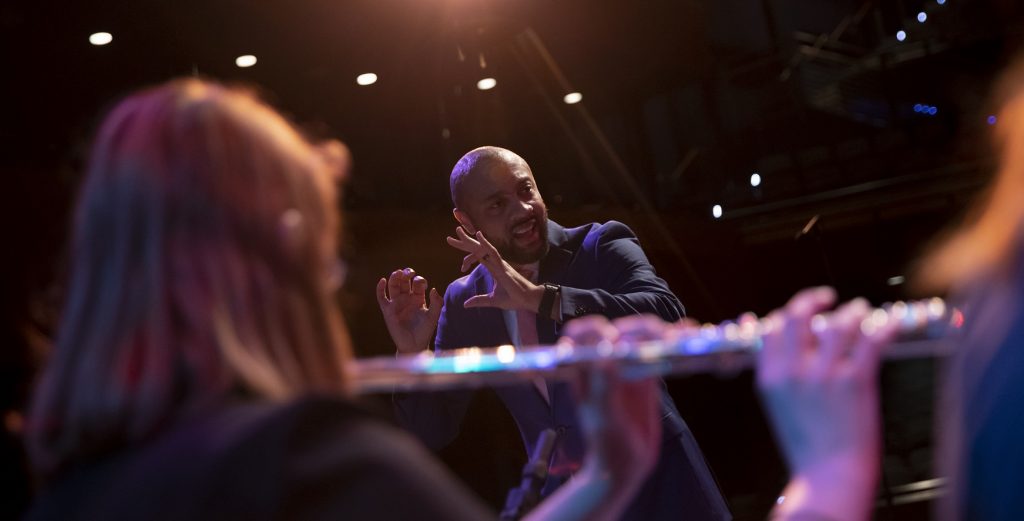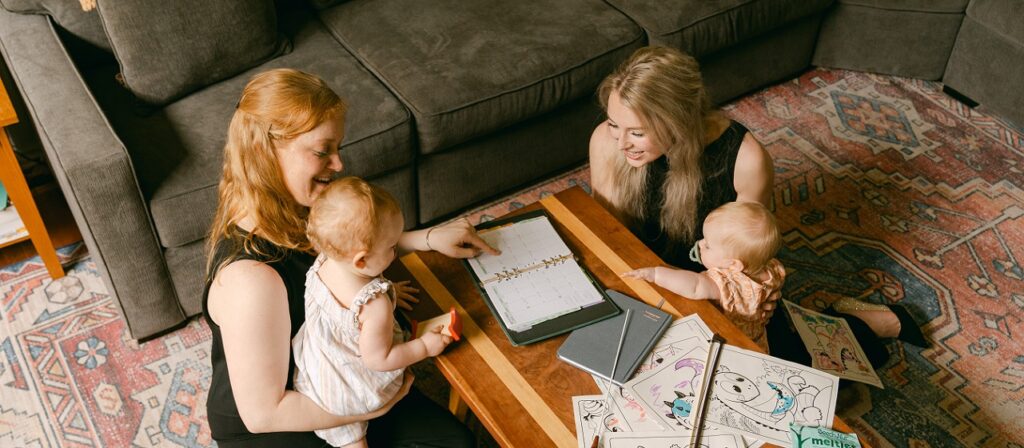Tagged Under:
A New Recording Studio Reinforces Auburn’s Interdisciplinary Approach to Music
Realizing that the music industry is about more than artistry, Auburn University has added business and technological components to its music department.
On the cutting edge of colleges for modern music students, Auburn University in Alabama is in the midst of a big project — building a new music recording studio on campus. A beautiful, 4,000-square-foot facility by Steven Durr Designs, this new studio follows two other debuts in the music department: a Music Composition & Technology major launched in 2019 and a Commercial Music degree launched in 2020. All of these developments are part of Auburn’s plan to foster an interdisciplinary approach to music education, which faculty members say will better prepare students for a professional career in the music industry.
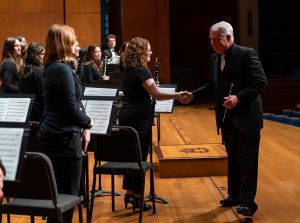
When Director of Bands Richard Good took over as department chair seven years ago, one of his first priorities was expanding the music program beyond performance. According to Good and Doug Rosener, Percussion Professor and Coordinator of Commercial Music Studies, the music industry isn’t only about artistry; it also has strong business and technological components. “We’re a top-ranked research school,” Good says. “Business and engineering are very strong here, and music should tie into those components very easily.”
Both Good and Rosener believe this upcoming recording studio, which is slated to open in the fall of 2023, will help students bridge the gap between the business and the artistry of music.
THE YAMAHA EDUCATOR NEWSLETTER: Sign up to receive real-world advice, tips and instrument guides!
Mixing Music, Technology and Business
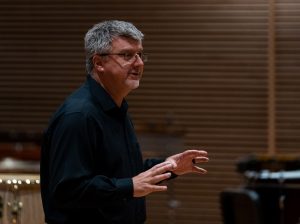
When students pursue a Bachelor of Music at Auburn, they have many concentrations to choose from. In addition to the Classical Instrumental, Voice and Piano Performance majors, which have long been a staple of the program, the past four years has seen the addition of the Composition & Technology and Commercial Music tracks. The upcoming recording studio plans to serve both of these new majors.
In 2019, the Composition & Technology major was launched, which prepares students for a composition career in film, video games and other media. According to Rosener, the new recording studio will provide students with opportunities to work with industry-standard equipment. “The Composition & Technology degree has coursework in audio engineering, where students can go into an actual recording studio atmosphere and learn how the system works,” he says.
The other primary major to benefit from this studio will be the Commercial Music degree, which was introduced at the beginning of the 2020-2021 school year. Rosener oversees this program and says that the coursework aims to prepare students for a myriad of careers in music. “It’s a hybrid of performance and business,” Rosener says. “There are so many different careers people don’t think about in addition to performing, such as music law, public relations, artist management, venue management. … That’s what our Commercial Music degree is designed to do — help [students] develop their artistry but also develop their practical business sense.”
Currently, about 45 students are enrolled in the Comp & Tech and Commercial Music programs, which accounts for about 28% of the roughly 160 total music majors at Auburn.
More than a Classroom
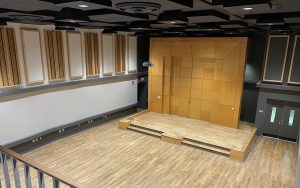
The new recording studio plans to meet students at that intersection between musical artistry and business. Beyond providing a space for students to record their own performances, the studio will also allow students to gain experience in record company management.
According to Rosener, Commercial Music students take a course that requires them to create a fictional record company. “They go out and get original songs, record in a studio and release the music on all major streaming platforms,” Rosener says. “They’ll use the studio to record for that class.”
Beyond coursework, though, the recording studio will also provide new opportunities to invite guest artists and lecturers. In planning the layout of the studio, Good and Rosener say that it will be big enough to include space for guest performances. “We can have singer/songwriter [performances] in there. We can have guest artists come in and do performances or talks in the studio environment,” says Rosener.
Good points out that the studio can also benefit students studying to be music teachers. By becoming familiar with multiple forms of technology, students will be better prepared for any situations that arise at their future schools. “I was terrible at learning how to record myself and using equipment,” Good says. “[When you start a teaching job], the first thing that happens is, the principal calls and says, ‘There’s a sound system. Get that working. You’re the choir or band guy, so you can figure that out.’”
According to Rosener and Good, the department also plans to open the studio as a commercial business. Any musician, group or ensemble will be able to book time in the recording studio for recording, mixing, mastering, voiceovers, etc. “We’re going to open it up to the general public and hopefully attract a range of outside clients,” Rosener says. “That will help generate revenue for the department and college and elevate our reputation musically and as a business.”
Recording in Progress!
Rosener and Good have big plans for the music studio but building a new studio is a long process. Currently, construction is in progress, and Auburn hopes to open the studio this coming fall. “Right now, the shell is just about done,” Good says. “We want to be cautious; we’re not ready to put equipment in there just yet.”
Outside of physical construction, another time-consuming aspect of building a recording studio is finding and hiring the right people to choose the best equipment and set it up correctly. “Right now, we’re hiring for an audio engineer. … We want someone who’s been in the studios, and we want that person to oversee the equipment,” Good says. “Nothing in a university goes quick, but right now we want to make sure we find the right person.”
Though the studio is still a few months out from opening, Good and Rosener are already looking forward to the ways it will amplify Auburn’s mission as a university. “Before we started this, I was of the opinion that, here we are, a large research institution that’s known for engineering, technology and business, and the music program had none of that,” Rosener says. “When Rick [Good] took over [as department chair], we were able to modernize, and adding technology and cutting-edge programs seemed like the smartest way to do that.”
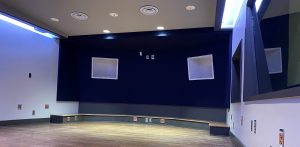
Both the Comp & Tech and Commercial Music programs have seen significant growth during their few years in operation, and Rosener predicts that this growth will continue. “We currently have an additional 35 prospective students [applying] to the music department to start one of those programs this coming fall and expect more to apply throughout the spring” Rosener says. “Numbers are increasing quickly!”
While Good and Rosener would like to see the program continue to grow, numbers are not their primary metric. “Our main goal is to produce outstanding musicians with excellent prospects when they leave Auburn. Quality is more important to us than quantity,” Rosener says. “I do think we will continue to see rapid growth because students now have the option to study all types of music, and now different paths are available for those students who might not have a traditional music background.”
Auburn University is one of 10 distinguished colleges and universities selected to be part of the inaugural Yamaha Institution of Excellence program, which recognizes extraordinary commitment to innovation in the study of music. The Yamaha Institutions of Excellence were chosen for their dedication to providing unique and challenging experiences to music students through diversity of thought and curriculum. They are also recognized for exposing students to a wider variety of voices and opportunities and preparing them for the modern world of music.











